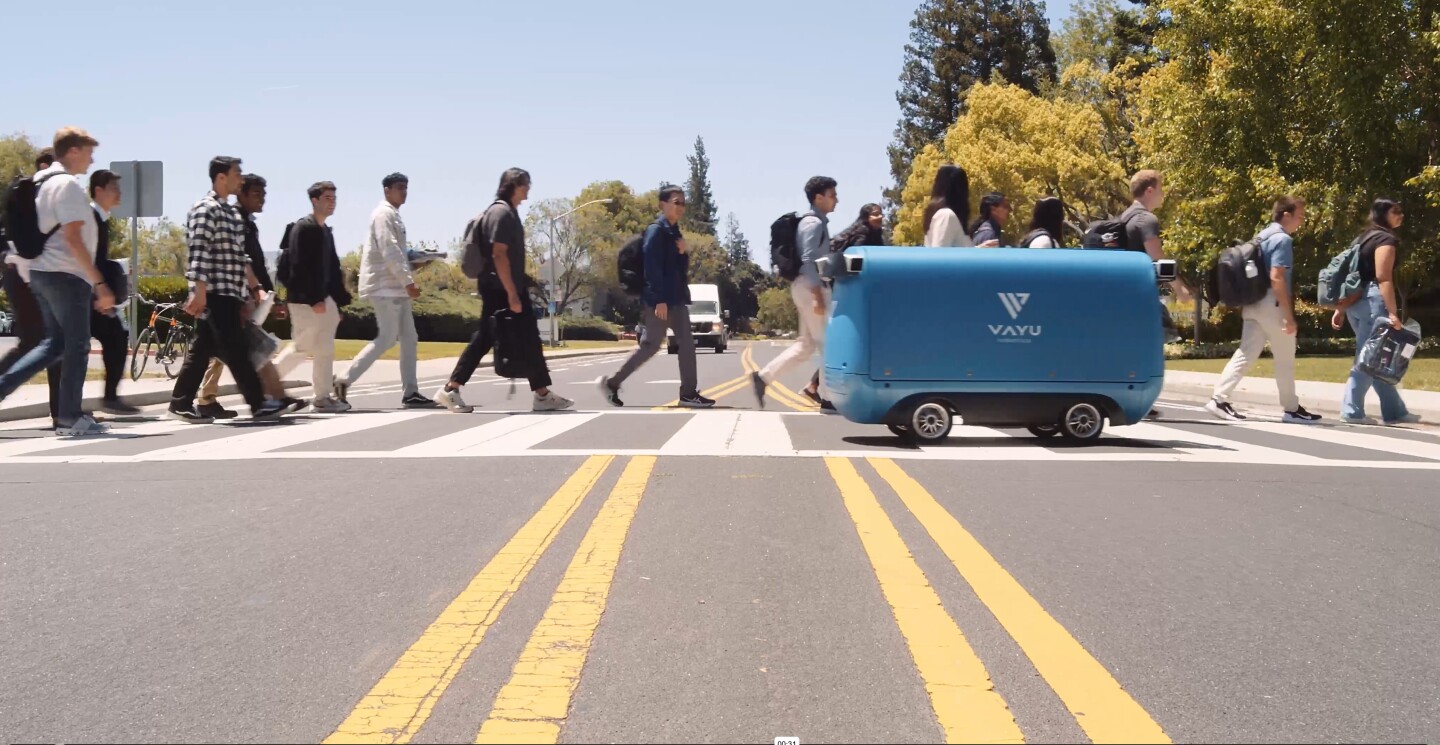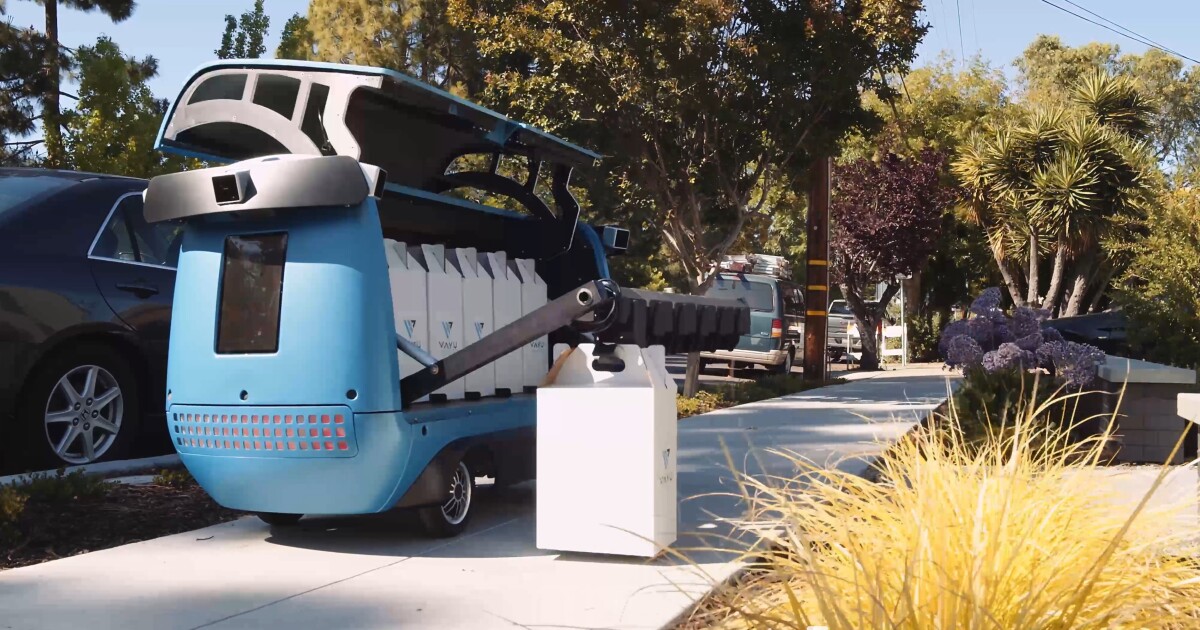Vayu Robotics today unveiled its first delivery robot. The One can follow employees around stores to pick up customer orders, then autonomously navigate city streets at speeds of up to 20 mph to deliver goods. Commercial deployment has begun.
Over the years, we’ve seen plenty of delivery robots roaming campuses and neighborhoods, with companies like Amazon, Fed-Ex, Walmart, Uber Eats and others trying different solutions. Taking a slightly different route is a California startup with an autonomous robot that uses a new low-cost vision and AI training system to navigate without pre-mapping a route, doing away with expensive sensor sets.
Vayu Robotics was founded in 2021 by “engineers, technologists, and business leaders with decades of industry experience developing and commercializing cutting-edge automotive sensors, autonomous vehicles, and robotics technologies.”
In 2022, the team launched a newly developed camera sensor that aims to enable its autonomous delivery robots to navigate without LiDAR sensors. Vayu Sense “combines dense, low-cost CMOS image sensors with advanced computational imaging and machine learning techniques.” The company claims this proprietary technology not only outperforms typical RGB cameras, but also LiDAR, resulting in a cost-effective, high-resolution robotic vision system with high-resolution depth perception, object detection, and the ability to work effectively in challenging environments.
Vayu Robotics
It followed with a proprietary AI core model for robotics autonomy called Vayu Drive, which is trained using both simulated and real data and negates the need for HD maps, localization technology or LiDAR – relying instead on the Sense vision system.
“It’s an end-to-end neural network similar to LLM in that it works on a token-to-token basis,” the company explained. “The input is multimodal – image tokens from cameras, instruction tokens for instructions for the robot to execute, route tokens to show it a road-level navigation path.
“Unlike other LLMs, it has a notion of ‘state’ that builds up over time and is updated with each incoming input frame. This allows for large contexts without the typical slowdown that occurs with large contexts. It is designed to run effectively on the edge at 10 frames per second.”
Vayu Robotics emerged from stealth last October with $12.7 million in seed funding from backers including Lockheed Martin, and has now announced the launch of its first delivery robot. The One is designed to be driven on roads as well as cycle paths, pavements and in shops, which – combined with the use of AI foundation models and low-cost passive sensors – is considered a world first.
The four-wheeled electric van is 3.3 feet (1 m) tall, 5.9 feet (1.8 m) long and 2.2 feet (0.67 m) wide – so it shouldn’t be too much of an obstacle for other traffic. as they head towards customers at speeds of up to 20 mph (32 km/h). The maximum range per battery charge is said to be between 60 and 70 miles (up to 112.6 km).

Vayu Robotics
Once it arrives at the departure location, it can stand on the sidewalk or driveway, stop, open the side door, and remove the assigned package using the robotic arm. It can store up to 100 lb (45 kg) of goods in the storage area, though with some modifications that could increase to 200 lb, the company says.
The One is currently being tested by an as-yet-unnamed “major e-commerce player,” which plans to deploy 2,500 robots, starting in San Ramon, California, before expanding to other U.S. cities. Other commercial customers are expected to join the program, but Vayu is also looking to use its technology in other robotics applications — and is currently working with a “world-leading robotics manufacturer” to replace LiDAR sensors with Vayu’s sensing technology.
“Our software is robotic form factor agnostic and we’ve already deployed it on several wheeled form factors. In the near future, Vayu’s software technology will enable the movement of quadruped and biped robots, allowing us to expand into these markets as well,” revealed company co-founder Anand Gopalan. The video below has more.
Source: Vayu Robotics
